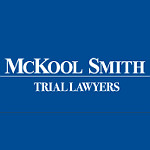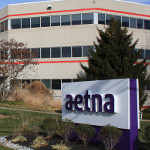Freeborn & Peters LLP has expanded its Insurance and Reinsurance Industry Team with the addition of attorneys Melissa B. Murphy, Steven D. Pearson, Michael J. Braggs and Sarah E. Chibani.
Murphy and Chibani are based in the firm’s Tampa, Fla., office. Pearson joins Freeborn’s Chicago office, and Braggs is based in the firm’s Richmond, Va., office.
Last year, Freeborn opened its first Florida office, in Tampa, and combined with New York City firm Hargraves, McConnell & Costigan P.C. In 2016, the firm combined with Richmond, Va., law firm Brenner, Evans & Millman P.C.
“We are thrilled to welcome Melissa, Steve, Michael and Sarah to the firm as we continue to expand the breadth and depth of our services to our insurance industry clients,” said Joseph T. McCullough IV, a partner and leader of Freeborn’s Insurance and Reinsurance Industry Team. “Our group’s reputation in the industry among the regional, national and international markets is exceptional as we continue to recruit highly knowledgeable and experienced insurance and reinsurance practitioners.”
Lawrence P. Ingram, a partner and member of the Insurance and Reinsurance Industry Team and head of Freeborn’s Tampa office, said, “Melissa and Sarah are great additions to our insurance industry team in Tampa. Our clients will greatly benefit from their combined experience in diverse commercial and insurance coverage litigation matters.”
In a release, the firm said Murphy is a partner who focuses her practice on business and commercial litigation. She has practiced in the area of real property litigation, contracts and indebtedness, and enforcement of restrictive covenants. She also has experience in insurance brokerage issues, as well as working with financial institutions. Prior to joining Freeborn, Murphy practiced at Cobb Cole, focusing on similar matters. She received her J.D. (magna cum laude) from Florida State University College of Law and her Bachelor of Arts (summa cum laude) from Florida State University.
Also a partner, Pearson focuses in the areas of insurance non-compete, insurance coverage, bad faith, reinsurance, non-medical professional liability defense and complex general commercial litigation. He also litigates large-scale attorney fee disputes and has testified as an expert witness in such matters. In addition, he has served as national and regional counsel for a number of insurance companies in a broad array of industry sectors. Most recently, Pearson was a partner at Cozen O’Connor. He previously spent 24 years at Meckler Bulger Tilson Marick & Pearson LLP. He received his J.D. from DePaul University College of Law and his Bachelor of Arts from the University of Minnesota.
Braggs is an associate who focuses his practice primarily on personal injury defense. He has trial experience and has handled all aspects of litigation, including trying more than 100 cases to verdict before judges and juries, both civil and criminal. He also has served as counsel in numerous mediations and arbitrations. Prior to joining Freeborn, Braggs served as staff counsel for GEICO, conducting negotiations and settlement agreements on behalf of GEICO insureds, as well as handling and managing significant circuit court litigation from inception through trial. He also served as an assistant public defender in the Office of the Public Defender in Fredericksburg, Va. Braggs received his J.D. from the University of Richmond School of Law and his Bachelor of Arts from North Carolina State University.
Also an associate, Chibani focuses her practice on insurance coverage litigation, professional liability defense and complex commercial litigation. Prior to joining Freeborn, Chibani was an associate in the First-Party Property insurance law group at Cole, Scott & Kissane, P.A., in Miami. She received her J.D. (cum laude) from the University of Miami School of Law and her Bachelor of Arts from Boston University.





